I'm trying to get maxima to perform some "abstract" Taylor series expansions, and I'm running into a simplification issue. A prototype of the problem might be the finite-difference analog of the gradient,
g(x1,dx1) := (f(x1+dx1) - f(x1))/dx1; /* dx1 is small */
taylor(g(x1,dx1), [dx1], [0], 0);
for which maxima returns
So far so good. But now try the finite-difference analog of the second derivative (Hessian),
h(x1,dx1) := (f(x1+dx1) - 2*f(x1) + f(x1-dx1))/dx1^2;
taylor(h(x1,dx1), dx1, 0, 0);
for which I get
which is not nearly as helpful.
A prototype of the "real" problem I want to solve is to compute the low-order errors of the finite-difference approximation to ∂^2 f/(∂x1 ∂x2),
(f(x1+dx1, x2+dx2) - f(x1+dx1, x2) - f(x1, x2+dx2) + f(x1, x2))/(dx1*dx2)
and to collect the terms up to second order (which involves up to 4th derivatives of f). Without reasonably effective simplification I suspect it will be easier to do by hand than by computer algebra, so I am wondering what can be done to coax maxima into doing the simplification for me.

